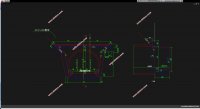大象山铁路隧道设计(含CAD图)(任务书,开题报告,论文说明书10000字,CAD图4张)
摘 要
本设计主要目的在于围绕宜万铁路DK151+065~+180大象山隧道,根据铁道第四勘察设计院提供的隧道工点工程地质条件说明表,并且结合相关规范以及参考进行隧道设计。对于本次设计,我将根据给定的水文地质条件,运营条件,地层岩性地质构造及地貌特征,不良地质等资料,并且参考铁路隧道设计规范等标准,先进行铁路隧道的平面设计,纵断面设计以及隧道净空尺寸的确定,然后结合实际条件确定洞口位置,进行洞门设计验算,衬砌设计,然后利用利用理正隧道衬砌设计软件对衬砌内力进行检算,看是否符合条件,最后对施工方案进行比较,给出最优施工方案。通过一段时间的学习,按照上面的步骤,参考隧道设计规范,一步一步的进行设计,最终收获了自己想要的数据。在设计的过程中,让我对隧道的设计流程以及方法有了清楚的了解,同时也对于理正衬砌软件,CAD软件有了更深入的了解与认识。
关键词:铁路隧道;洞门检算;衬砌设计
Abstract
Purpose of this design is around the railway should million DK151 + 065 to DK151 + 180 Daxiangshan tunnel, according to the worksite of railway survey and design institute to provide 4 tunnel engineering geological conditions of specification table, and combining with the relevant specification and reference for tunnel design. For this design, I will according to the given hydrogeological conditions, operating conditions, formation lithology of geological structure and topographical features, such as bad geological data, and reference standards such as railway tunnel design code, the first railway tunnel of graphic design, profile design, and the determination of tunnel clearance size and then combined with the actual conditions to determine the hole location, David design calculation, lining design, and then use the principle is on the internal forces of the lining of tunnel lining design software to calculate, look to whether accord with conditions, finally carries on the comparison to construction scheme, the optimum construction scheme are presented. After a period of study, I followed the above steps, referred to the tunnel design specifications, and carried out the design step by step, and finally got the data I wanted. During the design process, I have a clear understanding of the design process and methods of the tunnel, and a deeper understanding of the lining software and CAD software.
Keywords: Railway Tunnel Portal; calculation; lining design
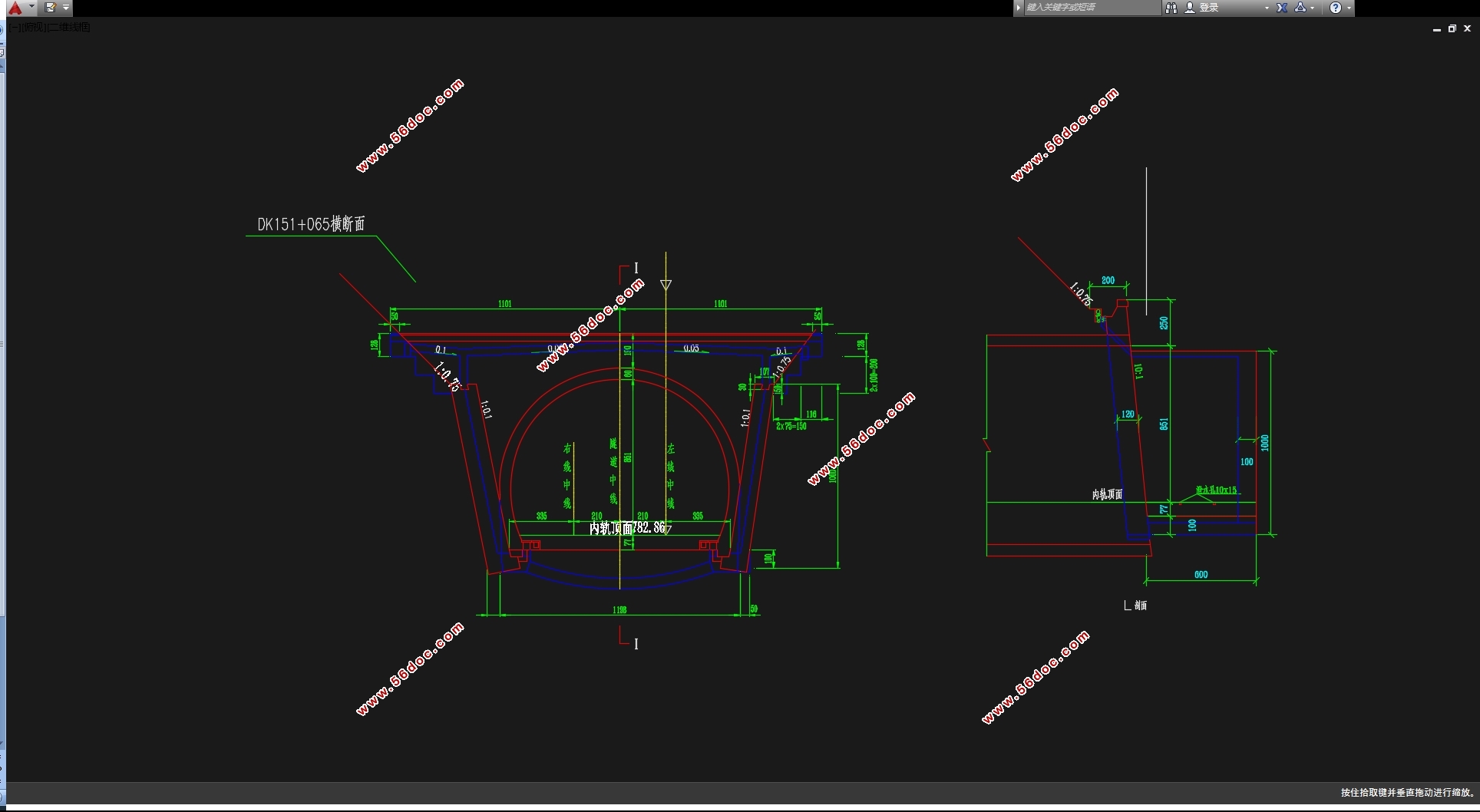
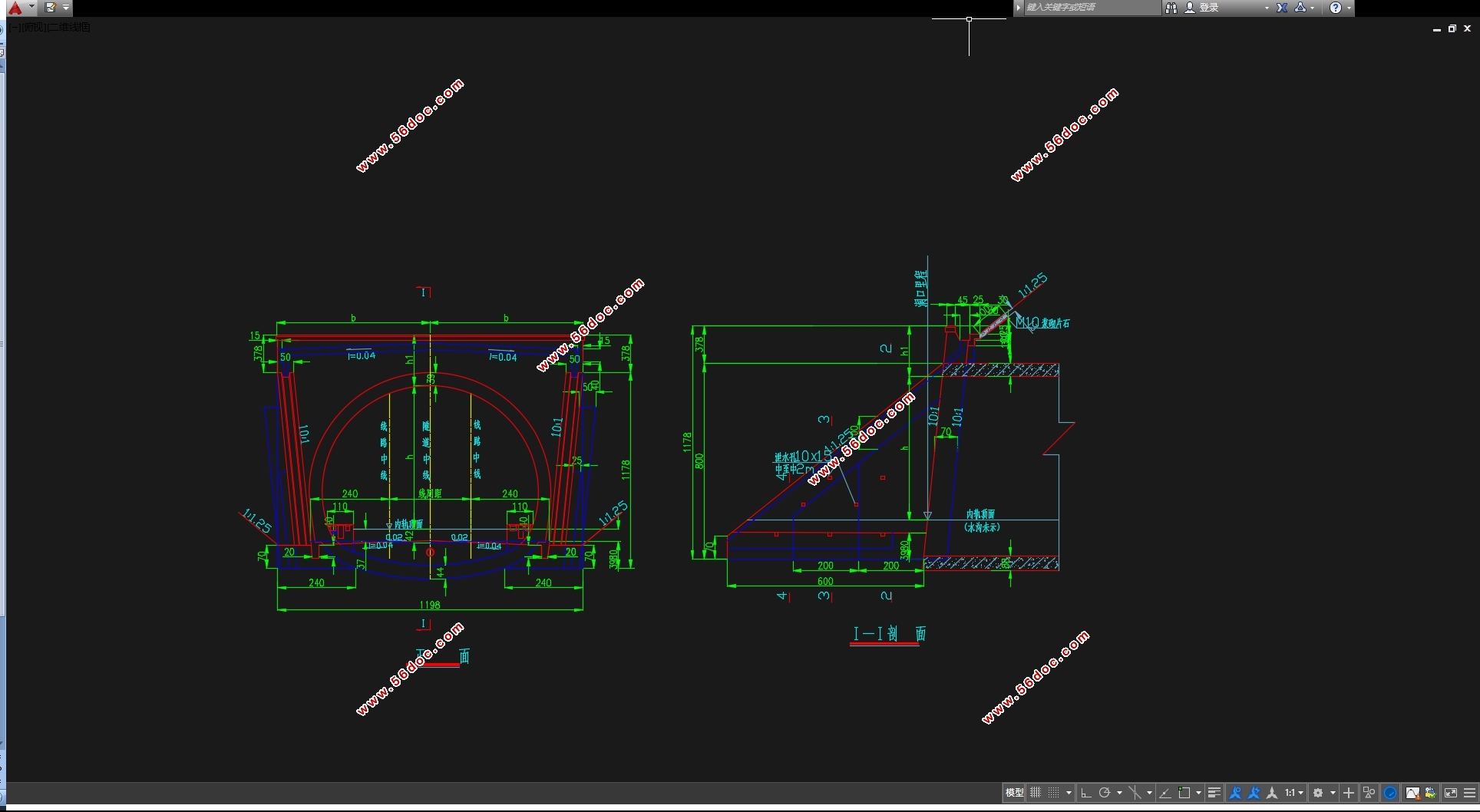
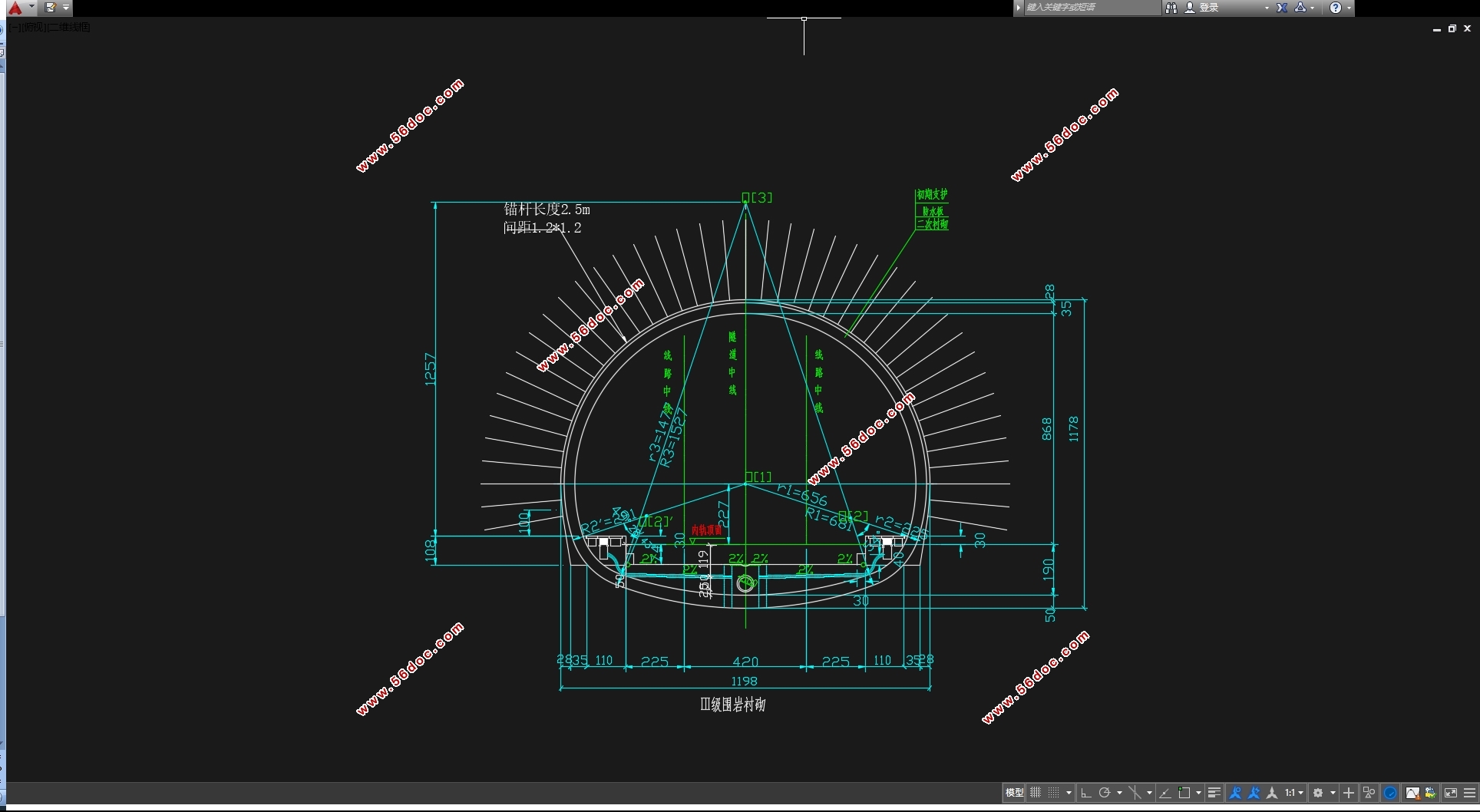
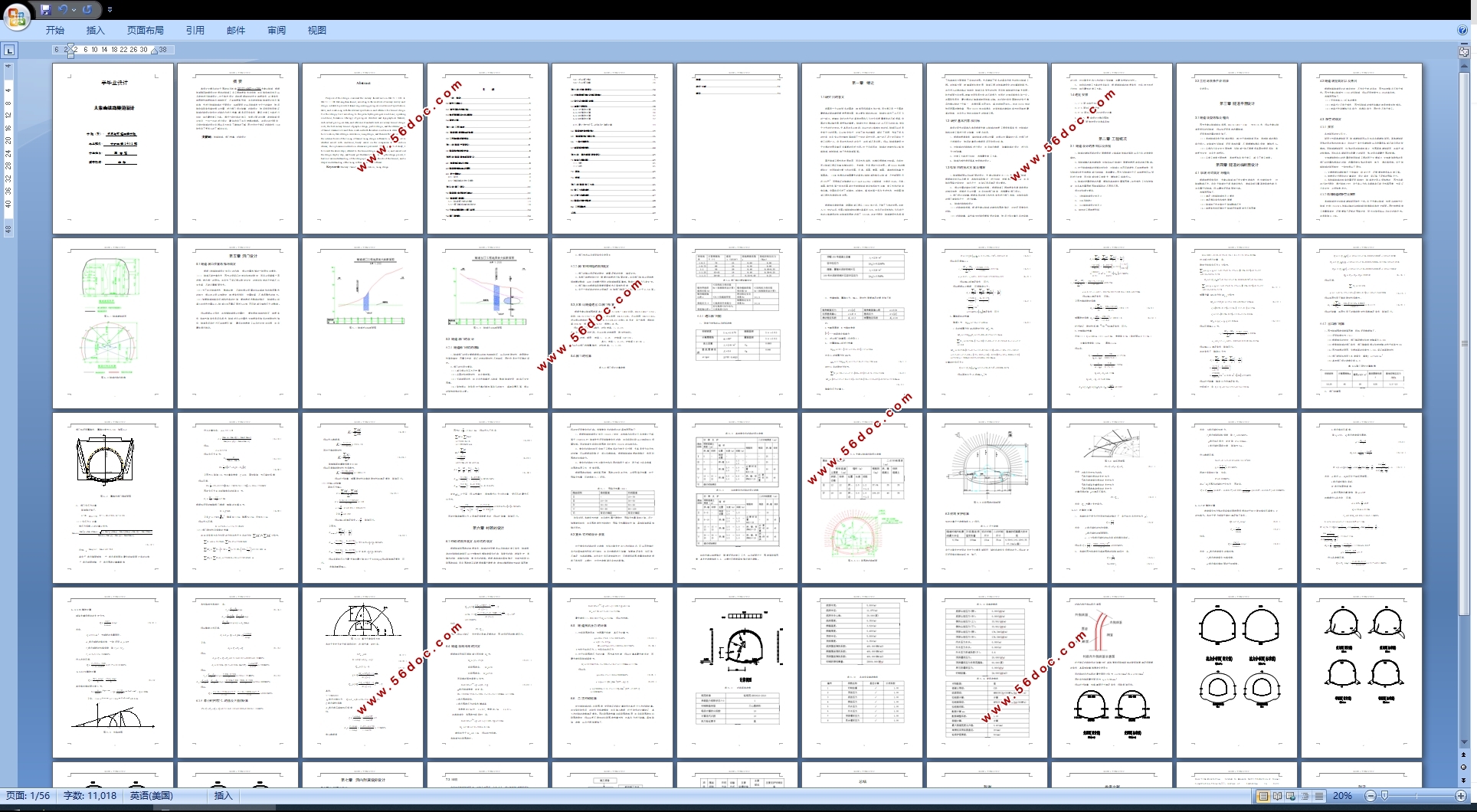
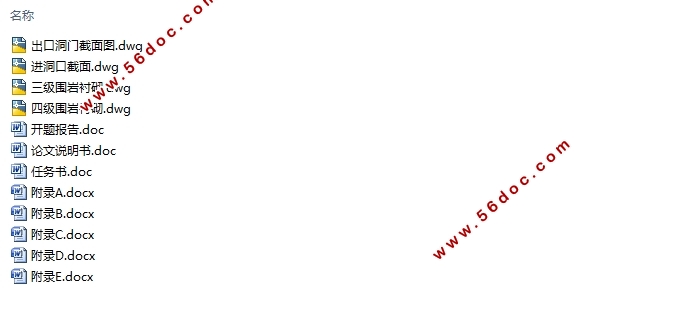
目 录
第一章 绪论 5
1.1研究目的意义 5
1.2 研究基本内容和目标 6
1.3拟采用的技术方案及措施 6
1.4进度安排 7
第二章 工程概况 7
2.1 隧道设计的原则以及依据 7
2.2工程地质条件说明表 8
第三章 隧道平面设计 8
3.1隧道线型选择及理由 8
第四章 隧道的纵断面设计 8
4.1 纵坡形式确定与理由 8
4.2隧道坡度确定以及原因 9
4.3 净空的确定 9
4.3.1 限界 9
4.3.2铁路隧道的净空及要求 9
第五章 洞门设计 11
5.1隧道洞口位置选择与确定 11
5.2 隧道洞门的设计 13
5.2.1 隧道洞门形式的选择 13
5.2.2洞门结构构造的相关规定 14
5.3大象山隧道进出口洞门布置 14
5.4洞门的检算 14
5.4.1 进口洞门检验 15
5.4.2 出口洞门验算 20
第六章 衬砌的设计 24
6.1衬砌的相关规定及形式的确定 24
6.2复合式衬砌设计参数 25
6.3初期支护验算 28
6.3.1 P1值的计算 29
6.3.2 P2值的计算 30
6.3.3 P3值的计算 32
6.3.4 P4值的计算 32
6.3.5 最小支护抗力 的值及P值得计算 33
6.4 隧道深埋浅埋的判定 35
6.5 隧道围岩压力的计算 36
6.6 二次衬砌验算 36
6.7截面强度的检算 44
第七章 洞内附属设施设计 45
7.1防水与排水设计 45
7.1.1排水 45
7.1.2防水 45
7.2 通风 45
7.3 照明 46
第八章 隧道施工方案 46
8.1施工方法的选择 46
8.2开挖方法的选择 47
8.3隧道弃渣处理情况 48
8.4 工程量清单 48
总结 49
致谢 50
参考文献 51
附录 53
|
